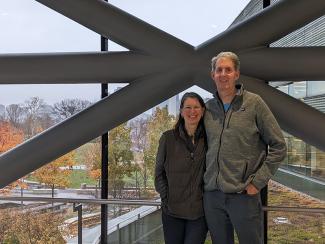“Tulane faculty have always been pioneers and have made singularly creative and profound contributions to imagining, and then building, a better world. There is likely no single academic area that will play more of a role in shaping the future than AI, and I am so grateful to the Wheeler family for their generous gift that will allow Tulane faculty to take the lead on this crucial and fast-moving field,” said Robin Forman, senior vice president for academic affairs and provost at Tulane.
The Wheeler Chair will accelerate the university’s recent progress in the AI realm, which includes the establishment of the Jurist Center for Artificial Intelligence, the Center for Community-Engaged Artificial Intelligence, and the Connolly Alexander Institute for Data Science and the opening of the Steven and Jann Paul Hall for Science and Engineering. Tulane is also upgrading campus technological infrastructure and convening working groups of faculty and staff to create guidelines for AI and explore its opportunities and challenges, including ethical concerns.
“The Wheeler Chair will be transformational by helping Tulane recruit a senior scholar to continue to build on our growing strengths in artificial intelligence research at Tulane,” said Kimberly Foster, dean of the School of Science and Engineering. “I am so grateful to Mark and Amelia for their generosity and support for applied AI research at such a crucial time.”
Wheeler, who graduated from Tulane in 1989 with a bachelor’s degree in computer engineering, co-founded DeepMap Inc., a Palo Alto, California, software developer of high-definition maps for self-driving vehicles. In 2021, multinational technology giant Nvidia Corp. of Santa Clara, California, acquired the company. Wheeler is now a vice president for systems software at Nvidia. Amelia Archer is a professional musician and music educator who has played principal flute with the Mission Chamber Orchestra of San José since 2001.
“AI is impacting all the sciences and will play a big role in future discoveries and progress,” said Wheeler, who serves on the School of Science and Engineering Board of Advisors. “Leveraging AI across disciplines will be critical for Tulane’s continued leadership in teaching and research. Expanding on Tulane’s already significant AI expertise will have a big impact across the school. I’m thrilled to be able to make this gift to help in this process.”































































